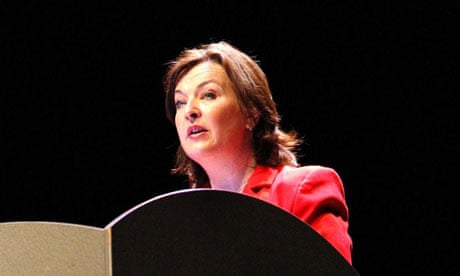Scotland's population has hit a record high of nearly 5.3 million people after a surge in inward migration and increased life expectancy.
The first set of figures from the 2011 census have shown that 5,295,000 people live in Scotland, an increase of more than 5% since the last census – the fastest growth rate in the last century.
The total UK population last year was 63,181,775.
Scotland's record figure, attributed in part by Scottish ministers to the successes of devolved government in Edinburgh, is largely due to several hundred thousand people moving to Scotland to work, as well as a modest growth in births compared to deaths.
Until this census, Scotland's population had been in slow decline from its peak of 5,227,000 in the mid-1970s down to 5,055,000 in 2002.
But in one of the most significant findings for ministers and the NHS, the census has confirmed that Scotland's population is also ageing. For the first time, the number of Scots aged over 65 was greater than those under 15.
Although the number of under-fives has grown by 6%, the number of children five to 14 has fallen by 11% and the number of over 65s has grown by 11%. There are now 230,000 Scots aged over 80, compared to 193,000 ten years ago – an increase of 19% .
The last Labour first minister, Jack McConnell, had made population growth a key target for the devolved government.
Fiona Hyslop, the Scottish culture and external affairs secretary, said these figures, which will be followed up by more detailed census data in early 2013, were evidence of Scotland's success as an attractive place to live.
"These figures represent an historic moment for our country," she said. "A decade and more of devolution has delivered a growing and record high population. That is not simply a sign of the dynamic, attractive nation we are building. It is also a key factor in delivering economic growth in future years."
Hyslop played down the significance of Scotland's ageing population. Other policy makers and analysts have warned an elderly population will greatly increase health and social care costs.
Scotland has a policy of free personal care for the elderly in their own homes. The costs of that policy increased by 150% between 2003 and 2010, to £342m, and the number of elderly is due to rise by 62% by 2030.
The British Medical Association said these figures mean the Scottish government and council planning authorities have to put measures in place to ensure adequate health services are central to new housebuilding projects.
Dr Alan McDevitt, chairman of the BMA's Scottish general practitioners committee, said: "At present there is no requirement for planning departments to consider the impact of new housing developments on local health services. We believe that it would be common sense to include this as part of the planning process."
